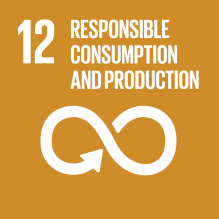
Put a Price on Pollution
Carbon pricing makes polluters accountable for greenhouse gas emissions. Implementing it at UB will drive us to make necessary changes for a better future.
On this Page
Sub-strategies
- Phase I (2020)
- Establish a university-wide task force to determine viable carbon pricing frameworks, models and options
- Phase II (2021-2022)
- Conduct peer reviews, assess case studies of higher education sector and devise overarching carbon pricing strategy
- Phase III (2023)
- Implement new university-wide standard system for directly financed travel to track carbon mobility emissions of staff, faculty and student travel
- Establish recurring climate action fund for university projects
- Phase IV (2024)
- Share travel carbon emission data with units across campus, building awareness
- Assess carbon proxy pricing for new capital construction projects
- Build systems to integrate building utility data and university budget process in service of potential reverse budgeting system for utilities across campus
- Phase V (2025)
- Central Business Services and Units share carbon cost of directly financed mobility emissions.
- Implement carbon proxy pricing for new capital construction projects
- Pilot reverse budgeting system for utilities across campus to build stewardship of building emissions
- Assess carbon fee levied on non-green commuting to be directly tied to offset program to cover emissions
- Phase VI (2026)
- Units to fund cost of directly financed mobility emissions
- Continue to advance carbon proxy pricing for new capital construction projects
- Scale reverse budgeting system for utilities across campus to build stewardship of building emissions
- Pilot carbon fee levied on non-green commuting to be directly tied to offset program to cover emissions
Policies
Numerous financial policies will be developed and presented to the university for adoption by this working group. Regulations promulgated under the Climate Leadership Community Protection Act will help form additional internal policies.
Updates
Fall 2022 - Spring 2023
The university has been working on instituting carbon accounting across four major areas: travel, capital construction, building stewardship and commuting.
This committee has reworked the university’s travel policy to integrate climate action at its core. Each time a faculty or staff member wants to book travel through Concur, they now must go through a preapproval process that informs the user on their emissions and the impact of travel on the climate. Moreover, behind-the-scenes improvements in Concur have also greatly increased the university’s ability to track carbon emissions from directly financed travel, which will make our greenhouse gas inventory more accurate.
The carbon pricing team has also been working diligently to align organizational budget modeling with designated university space in order to investigate how we may better align stewardship and conservation tactics by local units. In addition, special attention is being paid to New York State’s efforts in this space and specific policy work is being done to advance carbon pricing which may be adopted by the university. Finally, and perhaps most importantly, the team has worked successfully to institute a university-wide fund that will provide direct fiscal resources for UB’s 10 in 10 starting in this fiscal year.
Fall 2021 - Spring 2022
UB also wants to make the campus aware that, as part of the pre-approval process for traveling, individuals will now be asked to certify they are mindful of the university’s goal of achieving climate neutrality and its 10 in 10-climate action strategy — a roadmap toward net zero emissions by 2030.
One of those key 10 strategies is focused on pricing carbon and working to factor in the cost of emissions across the university.
“The strategy we’re really putting forth right now is awareness — just getting the campus community aware that when we travel that has carbon emissions,” says Beth Corry, university controller and associate vice president for business services, who leads the pricing carbon work at UB. “Then, we can over time determine how we work to mitigate those emissions."
Fall 2020 - Spring 2021
The committee met with Second Nature and the Smith College to discuss various carbon pricing methodologies. Using baseline assessments and case studies as foundational knowledge, the committee moved to expand its current understanding of carbon pricing.
The committee collaborated with the Graduate School of Architecture and the Department of Environment and Sustainability in the College of Arts and Sciences to have students research pricing frameworks in the Spring 2021 semester. Their research provided insights on case study comparisons, cost-benefit analysis, and legislative challenges. In the next year, the committee will be rolling out a reverse budgeting option and imposing carbon pricing at a unit building level.
Sustainable Practices Seminar: Carbon Pricing and Carbon Offsets [1:19:01]
The Spring 2021 class of Sustainable Practices Seminar had two teams of students work with the Carbon Pricing and Carbon Offset committees of UB's Climate Action Plan. This is their final presentations to those committees.
Committee
- Captain: Beth Corry, associate vice president for Business Services.
- Ashley Butcher, Senior Staff Assistant, Financial Management.
- Peter DiNunzio, Resource Analyst, Resource Planning.
- Michael Shelly, Research Assistant Professor, RENEW Institute.
- Brandon Szerwo, Assistant Professor, Accounting.


